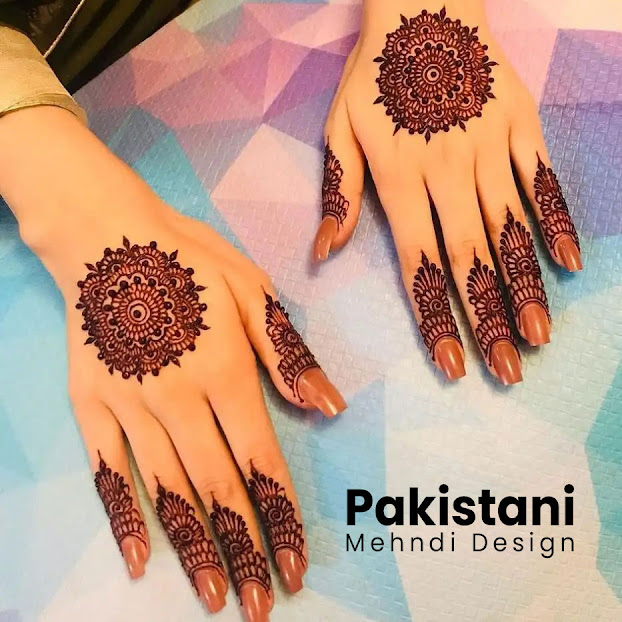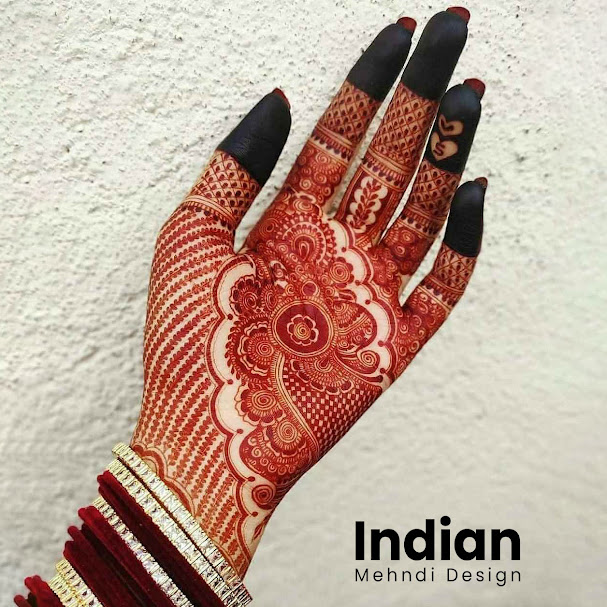Being a PAKISTANI, you know the importance of Mehndi for us. It is not only considered important during weddings but is also an important part of different festivals and religious events, such as Eid and Chand Raat.
Just like Pakistani Women, Indian
Women also decorate themselves with mehndi at weddings and their religious
festivals such as Rakhi, Karwachauth, and Diwali. Mehndi is worn by women not
only in Pakistan and India but in many countries around the world. Each region
features different motifs which are predominant in their culture and tradition.
Keep reading to know about the
most popular Mehndi Designs from different regions of the world.
Pakistani Mehndi Design
Pakistani Mehndi Designs are
unique and detailed, and they symbolize Pakistani culture and its values and
traditions. The Pakistani designs are comprised of flowers, domes, and leaves
with a minimal design that makes them unique from others.
The floral Pakistani mehndi designs are one of the most detailed and intricate and cannot be applied by just anyone. Although it is difficult to apply, it looks stunning when applied to the hands. As detailed as it seems, Pakistani mehndi takes hours to complete.
Although sharing the same origins,
the Indian Mehndi Design varies from the Pakistani design in many ways. Just
like Pakistani mehndi, it is detailed and intricate and looks very stunning
when applied. However, the Indian designs are more influenced by Hinduism and
Hindu culture, symbolize Hindu beliefs and traditions, and feature motifs like
bride and groom figures, peacocks, and Kalash.
Originating from the Arab world, Arabic design has gained wide popularity among mehndi enthusiasts for its unique design. Compared to other designs, Arabic designs are more modern with a touch of royalty to them. It is a mixture of floral artwork and geometrical lines and features big motifs that look stunning and elegant at the same time.
You might be surprised, but it is true. Mehndi has been part of African culture for around a thousand years. The African mehndi design is comprised of tribal designs and patterns with bold geometric designs and bold outlines that embrace the African culture. African design features elements like spirals, rings, dots, barbs, and their variations. This design has gaps and spaces just like the Arabic design.
Moroccan Mehndi Design
Moroccan mehndi is popular for
its unisex design. It means that men interested in mehndi can also wear it. It
features big geometrical shapes, lines, and dots with prominent traditional and
tribal patterns. Zig-zag lines and diamond shapes are usually used in Moroccan Mehndi Designs.
In Moroccan mehndi, each shape and pattern has a different meaning and purpose. The Moroccan designs are charming and have a unique identity among others.
Western Mehndi Design
Inspired by the east, the western
world has also started applying mehndi. However, neither is it a part of their culture
nor do they have any emotional attachment to mehndi like the eastern world.
Known as henna tattoos, they apply mehndi for its medicinal properties and to
get the feel of a temporary tattoo.
Featuring geometrical figures, lines, swirls, and quirky shapes, the people of the west are often seen wearing mehndi imitating hand jewelry like a ring and bracelet.
Conclusion
From using henna for dying hair
and nails to using it as temporary tattoos, mehndi has been around humans for
thousands of years. Mehndi has been used throughout human history for various
purposes. Although it has significance in many cultures, the designs greatly
vary. It is because each region has adopted it according to its culture and
traditions.
Learning the art of applying
mehndi is not as difficult as it seems to be. Some designs are intricate and
need more precision and practice, while others are simple and can be mastered
easily.
If you are interested in learning
this art, then we have a great Mobile Application for you comprised of
different designs to select from and start practicing. You can choose from
thousands of different Mehndi Designs that can be easily applied. Let me know
if you like this blog by commenting below.










No comments:
Post a Comment